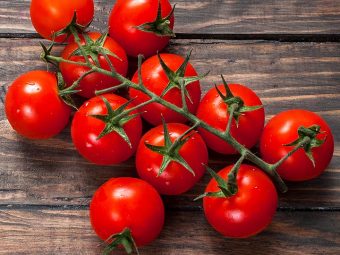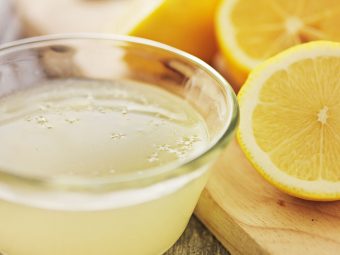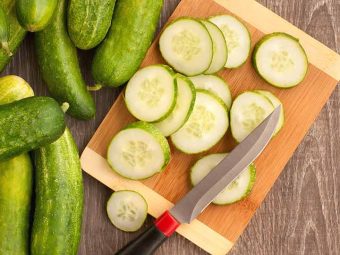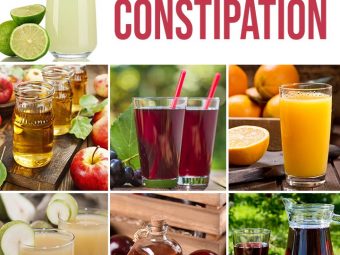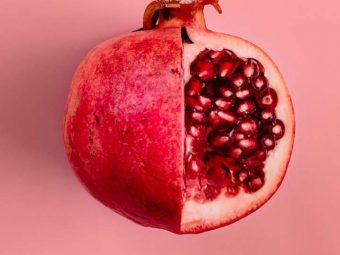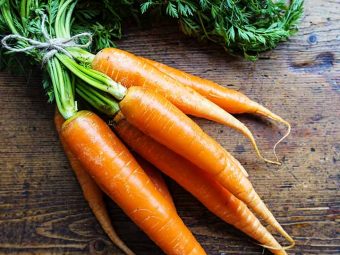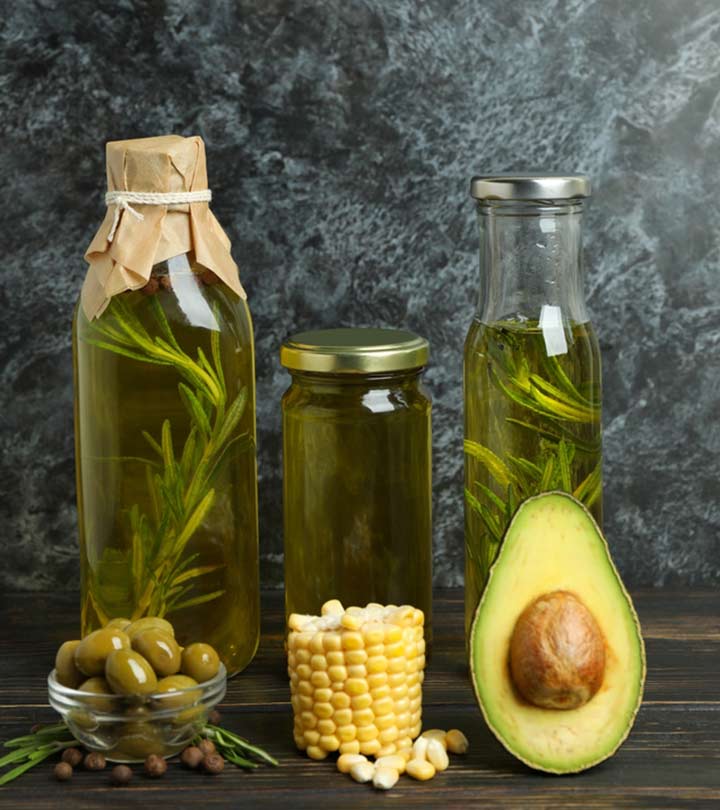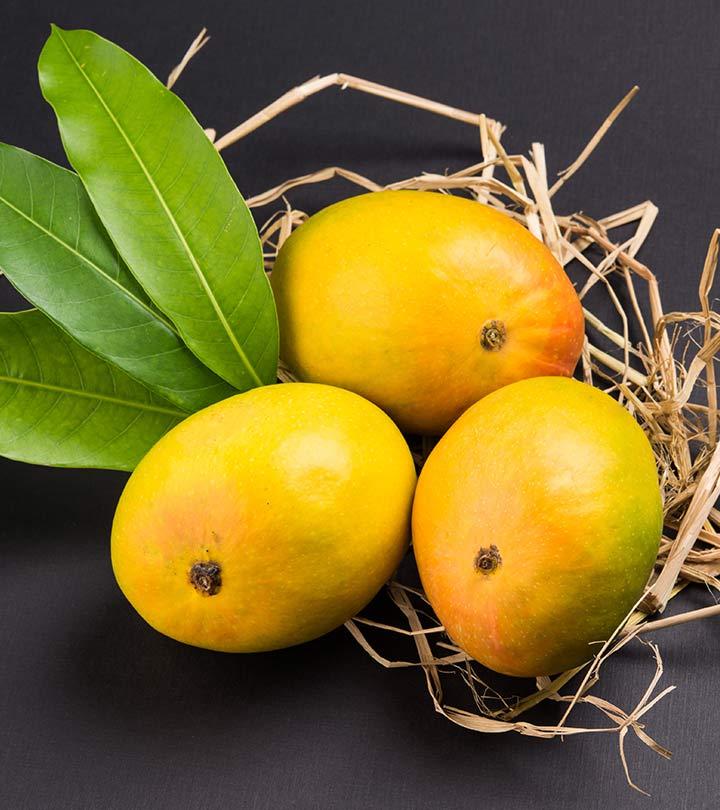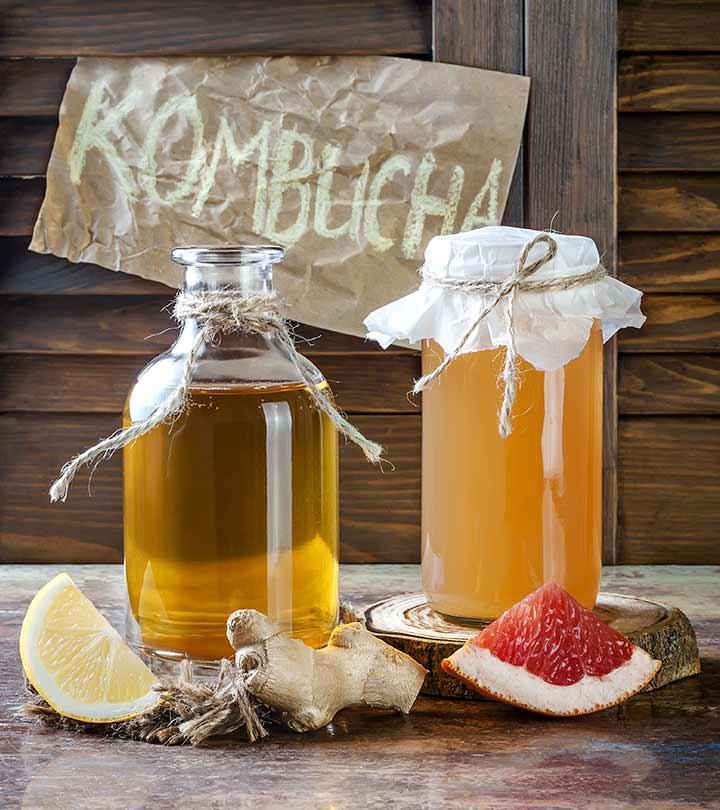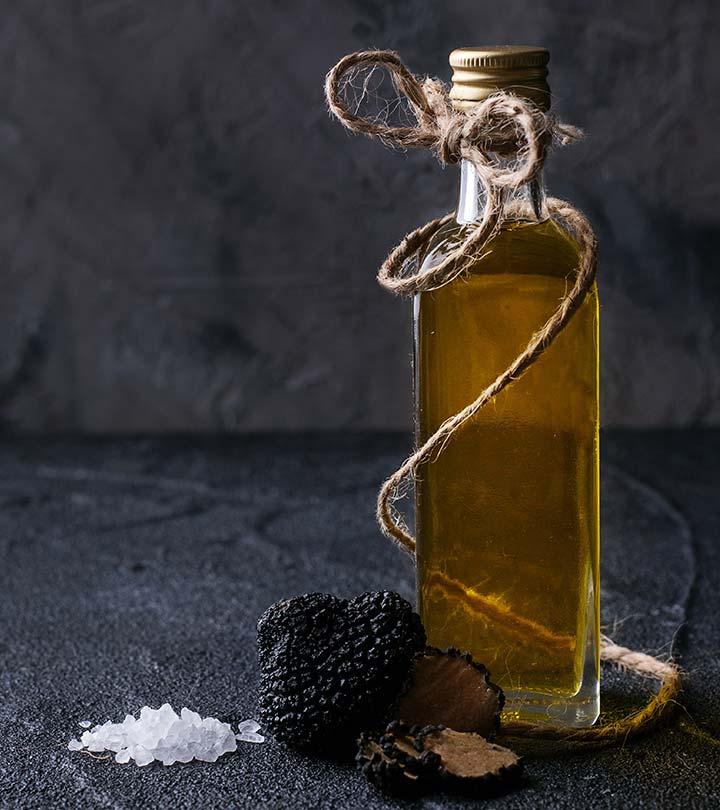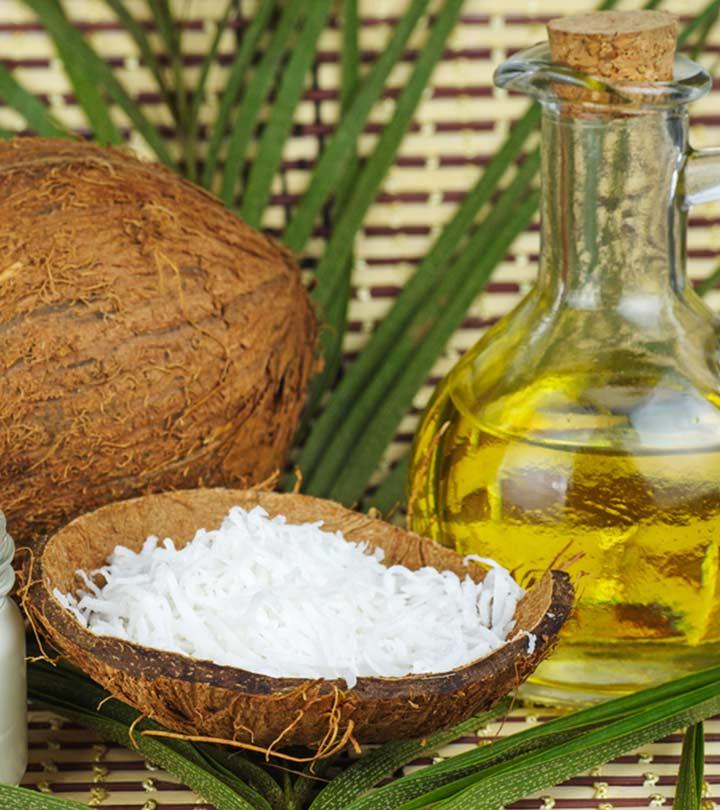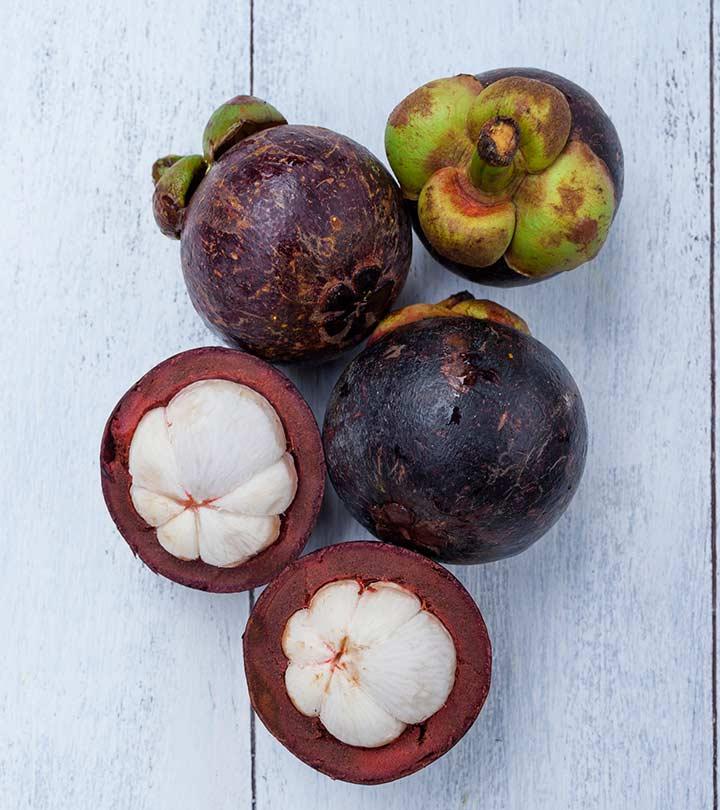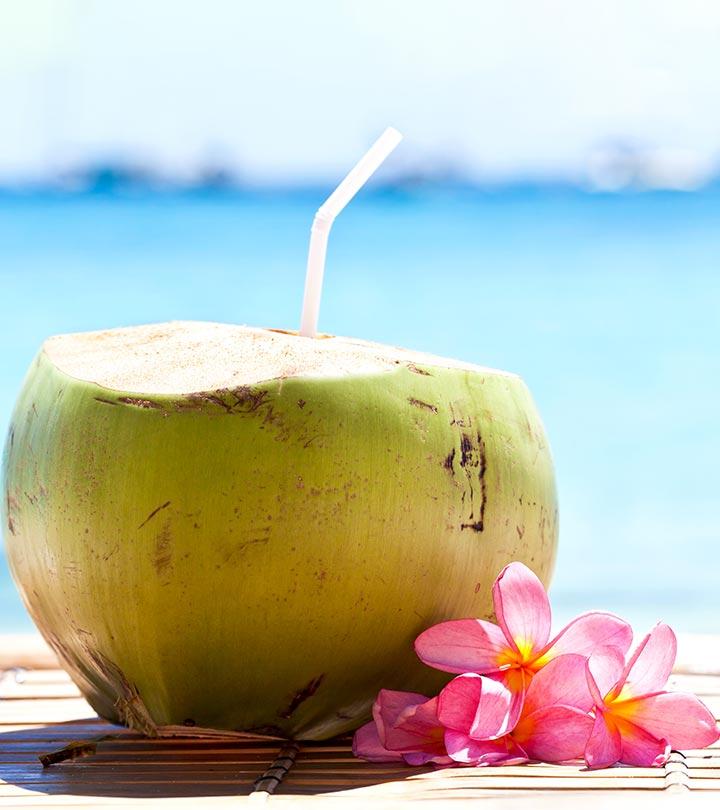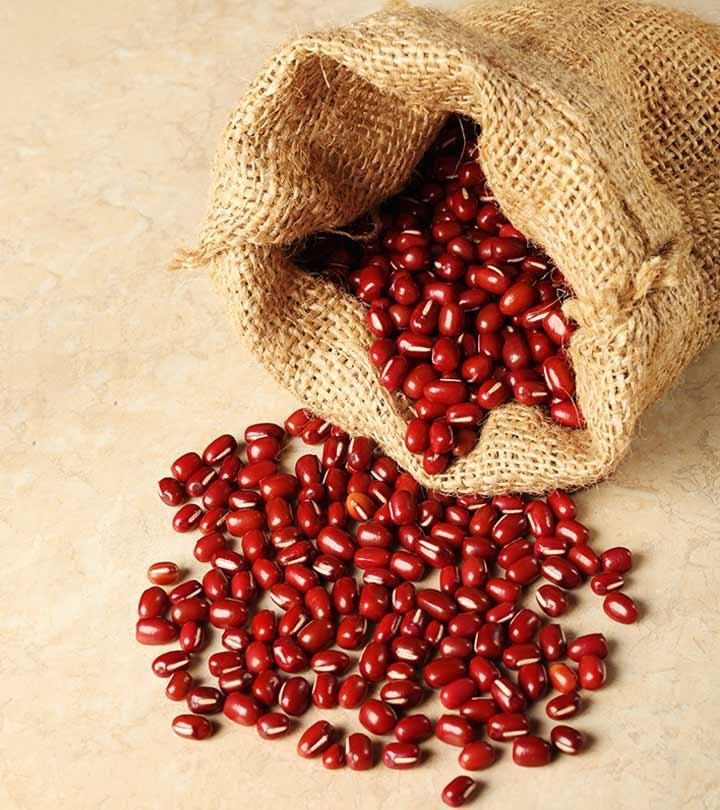8 Side Effects Of Drinking Beetroot Juice In Excess
Discover the dangers of overconsuming this versatile and vibrant vegetable.
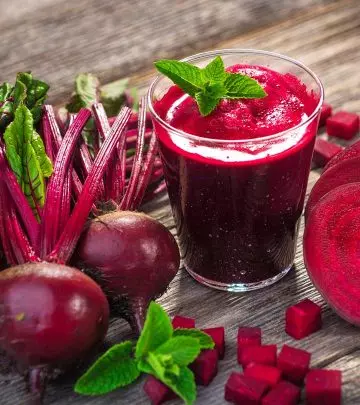
Beetroot juice is mostly consumed as part of a healthy diet and has many benefits. But are you aware of the side effects of beetroot juice? The major side-effects include kidney problems and liver damage. For instance, beetroot (beta vulgaris or beet plant) is high in oxalates that bind with calcium and may trigger the formation of kidney stones in vulnerable individuals (1).
Accumulation of metal ions in the liver is also associated with excess consumption of beetroot (2).
 Fun Fact
Fun FactDoes this mean you should completely avoid this nutritious food rich in iron and vitamins? No – but having it in moderation and noting the ill effects may help minimize these side effects of eating raw beets or having juice. Continue reading to know further about the side effects of beetroot juice consumption and how you can prevent them.
 Know The Flip Side: Beetroot
Know The Flip Side: BeetrootShort-Term Effects
May cause red or pink urine and stools, stomach upset, bloating, and a drop in blood pressure.
Long-Term Effects
May lead to an increased risk of kidney stones and may lead to metal ions accumulation in the liver over time.
Drug Interactions
Can interact with certain medications taken for blood pressure.
When To See A Doctor
If you experience any severe symptoms such as difficulty breathing, vast drop in blood pressure, hives, or swelling of the face, lips, tongue, or throat.
In This Article
What Are The Side Effects Of Beetroot Juice?
Is beet juice good for you? The answer would be probably yes as it is mostly consumed as part of a healthy diet and has many health benefits. Packed with vitamin C, iron, manganese, folate, folic acid, oxalic acid, fatty acids, and fiber content, concentrated beetroot juice has several health benefits. However, it is important to know the side effects of drinking this juice too.
1. Might Cause Beeturia
Beeturia is characterized by the discoloration of urine following the intake of beets or foods colored with beta vulgaris. Urine may range from pink to deep red, and this condition could be prevalent in about 14% of the population and have increased frequency in those with iron deficiency (3).
A study conducted on eight older adults showed that the intake of beetroot juice supplements could lead to beeturia in all but one individual (4).
For the majority, beeturia is not a disease but a harmless phenomenon that resolves on its own once the individual reduces the intake of beet/beet juice (3).
Jordana Tobelem, Registered Dietitian/Nutritionist, says, “Beetroot juice is absorbed by the body quickly. Once you drink beetroot juice, you will feel the effects within 2-3 hours, and it may last up to 24 hours. For the best results, it is recommended to drink about 1-2 cups, which is around 310-560 mg.”
2. May Increase Kidney Stone Risk

According to Clinical Nutrition Research, beets are rich in oxalic acid and may contribute to stone formation (1). If you already have stones, your doctor might recommend you to stop or reduce beetroot extract/beetroot juice consumption.
Symptoms of kidney stones include fever, vomiting, nausea, diarrhea, sharp pains in the abdomen and groin, and discoloration of urine. There are four types of kidney stones, with calcium being the most common of all. The mineral can combine with other substances, especially oxalic acid, and form a stone. There is limited research available on beetroot causing decreased calcium absorption. While the beetroot is a good source of other nutrients like vitamins, iron, dietary fiber, and minerals, it is low in calcium.
Beetroot is high in oxalate and can directly contribute to kidney stones. It increases urinary oxalate excretion, which can lead to the development of calcium oxalate stones (1).
3. May Cause Anaphylaxis
Though rare, beta vulgaris may cause anaphylaxis, which is an acute allergic reaction to an allergen to which the body has become hypersensitive.
In a study, a young girl complained of urticaria (red rashes on the skin that itch intensely, sometimes leading to dangerous swelling) and asthma after ingesting boiled beetroot (5). The girl also experienced hivesi XRaised and itchy patches of skin caused by an allergic reaction to food, medicine, or other irritants. , throat tightness, and bronchospasmi XTightening of the muscles lining the airway in the lungs, which can result in wheezing, coughing, and chest pain. . She has advised a diet free of beetroot, and she had no symptoms again (5).
4. May Cause Colored Stools
Beetroot (and foods with red coloring, like grape juice and pomegranate juice) may cause stools to appear reddish (6).
There is some evidence that beetroot may also cause black and tarry stools due to the presence of altered blood (7).
Dark and tarry stools could also be a symptom of beeturia. You may want to visit your doctor and discuss your recent dietary choices and history of similar events (3).
 Trivia
Trivia5. May Cause A Stomach Upset

Beetroot contains nitrates*. According to a publication by the U.S. Department of Health and Human Services, the nitrates in beetroot juice may cause abdominal cramps. Exposure to high levels of nitrate may lead to stomach cramps and vomiting (8). The increased nitrate level may result in adverse effects like decreased blood flow and increased heart rate.
Dr Khalil, a research scientist, experienced a notable episode of nausea after consuming beetroot juice for 21 days. He said, “For the past couple of days when I had the beet juice, I honestly felt a little bit nauseous afterward for like I don’t know, 30 minutes or so (i).” He further added his decreased enthusiasm for daily beetroot juice consumption. He said, “I did notice myself getting a little beetroot juice fatigue.”
The juice may also cause stomach problems in some people (9).
According to Jordana Tobelem, Registered Dietitian/Nutritionist, “The side effects of beetroot juice are rare, but some individuals have reported gastrointestinal side effects. The nitrates in the beetroot juice may cause abdominal cramps in those who already have sensitive stomachs.”
*Beetroot and certain other foods contain nitrates, which are converted to nitrites upon ingestion.
6. May Cause Problems During Pregnancy
The dietary nitrates in beets may cause a problem here. Pregnant women are more sensitive to the effects of nitrate. This can be attributed to the natural increase of methemoglobini XA form of hemoglobin that cannot bind to oxygen, which hinders oxygen transportation to the tissues. levels in the blood during the later stage of pregnancy.
Excess dietary nitrate can lead to methemoglobinemia (elevated levels of methemoglobin in the blood), causing symptoms like lack of energy, headache, dizziness, blue-gray coloration of skin around the eyes, mouth, lips, hands, and feet (10).
Though most epidemiological studies of pregnant women having elevated nitrate levels in their groundwater did not show any negative effects on their offspring, one study found an association between dietary nitrates and an increase in neural tube defectsi XSevere deformities of the brain or spine that a fetus develops within the first few months of pregnancy. (10). Therefore, consuming the nitrate-rich beetroot juice is not a good idea for pregnant women.
7. Might Harm The Liver
Studies suppose that extreme intake of table beetroot may cause several disturbances not only in healthy patients but also in those dealing with metal-accumulating diseases (2).
Excess intake of the veggie can cause the accumulation of metal ions in the liver (2). Though it is a healthy juice, its excessive consumption may affect liver health.
8. Might Aggravate Gout
Gout is a form of arthritis triggered by the accumulation of uric acid crystals in the joints (11). Beetroots are rich in dietary oxalates that do not directly cause gout but can contribute to kidney stone formation (12). The presence of kidney stones may, in turn, reduce kidney function. This impedes uric acid elimination, thereby raising uric acid levels, a primary driver of gout.
Thus, to manage gout effectively, individuals are advised to moderate their intake of high-oxalate foods as part of an overall balanced diet. This includes limiting the consumption of beverages like beetroot juice to lower the risk of kidney stones and potentially alleviate gout symptoms.
In addition, there are no documented beet juice and drug interactions. “Beetroot juice does not have any known drug interactions. However, since beets can have a lowering effect on blood pressure, those who take blood pressure medications should avoid high amounts of beets. Combining blood pressure medications with beets may lead to low blood pressure,” says Jordana Tobelem, Registered Dietitian/Nutritionist.
How Much Of Beetroot Juice Is Too Much?
There is limited research and no official recommendation regarding the safe dosage of beetroot juice. Hence, it is best to consult with your doctor to know more about the daily intake, whether drinking beetroot juice is safe for you, and how many glasses of juice you can consume per day. Your doctor may be able to give you a personalized recommendation based on your health condition.
 Fun Fact
Fun FactA Note On SuperBeets
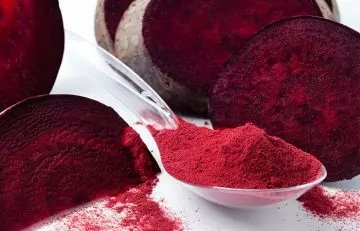
SuperBeets is a popular health supplement that allegedly lowers blood pressure and improves circulation. This dietary supplement is made of beetroots that are dehydrated into crystals.
There only is one study about SuperBeets, and concrete evidence on its efficacy to lower blood pressure is lacking. This beetroot supplement may lower blood pressure levels, but more research is warranted (13).
Most testimonials from people state that the supplement can lower systolic blood pressure and diastolic blood pressure and improve red blood cell production. However, certain others reported no beneficial effect. Exact information on SuperBeets is lacking.
If you are vulnerable to the side effects of drinking beetroot juice, the supplement could do more harm than good. Hence, it is imperative to discuss this with your doctor.
Infographic: How To Reduce The Risk Of Kidney Stones
Beetroots are packed with oxalates which if accumulated in the body lead to the formation of kidney stones. This condition, however, can be prevented by incorporating a few lifestyle changes. These are dietary changes that should be strictly adhered to in order to see results.
Check out the infographic below to discover the different ways you can follow to reduce the risk of kidney stones and what foods you should avoid. Illustration: StyleCraze Design Team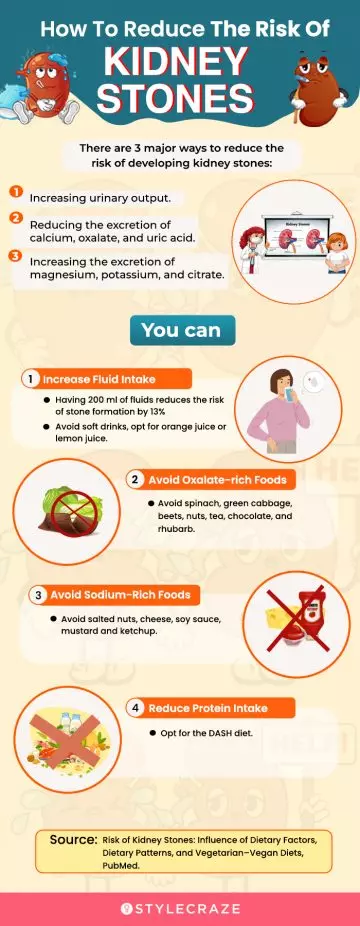
Beets are root vegetables with exceptional nutritional values. They are a source of fiber and contain essential vitamins, fatty acids, and iron content. They are lauded for their many health benefits, including treating iron deficiency, improving heart health, reducing cardiovascular diseases, and increasing muscle efficiency and athletic performance. However, excess intake of beetroot juice may cause side effects. Drinking beetroot juice in excess may cause the discoloration of urine, increase the risk of kidney stones, lead to anaphylaxis, colored stools, upset stomach, and problems during pregnancy like dizziness and lack of energy. Since no proper dosage is recommended, check your portions while consuming this drink. Consult your doctor if you have any medical condition, like kidney stones, before including beets in your diet.
Frequently Asked Questions
Does beetroot thicken your blood?
No. Jordana Tobelem, Registered Dietitian/Nutritionist, says, “Beetroot does not thicken your blood. Beetroot works by increasing blood flow, improving blood circulation, and improving oxygen uptake. This, in turn, helps to lower blood pressure and improve exercise or performance.” A glass of beetroot juice daily consumed by a healthy adult may decrease muscle soreness and fatigue in conditions of reduced blood flow during exhaustive exercise (14).
When should you drink beetroot juice?
The best time to have a cup of beetroot juice is early in the morning or 30 minutes before breakfast. Consuming a glass of juice before a workout or any physical activity may help improve athletic performance (14).
Is it OK to drink beet juice every day?
Yes, you can consume a cup of beetroot juice every day. The health benefits of beetroot juice are mainly attributed to the non-nutritive bioactive compounds or phytochemicals present in it (14). It increases nitric oxide levels that may help increase blood flow, strengthen muscle contraction, and manage heart diseases (15). But if you already have existing kidney problems, beetroot can pose an increased risk of kidney stones.
Is it good to drink beetroot juice on an empty stomach?
Yes, homemade beetroot juice intake on an empty stomach helps in better absorption of its nutrients. It is considered to be more
Does beetroot juice increase weight?
No, beetroot juice does not increase weight. It is very low in calories and helps in weight loss.
Does beetroot juice cause gas?
Yes, beetroot juice may cause gas and bloating in people with gastrointestinal issues. Hence, caution is advised while consuming it. However, you may consume the juice in moderation for its anti-inflammatory properties and other beneficial health effects.
Key Takeaways
- Excess intake of beetroots may cause beeturia and increase the risk of kidney stone formation due to the high oxalate content of the vegetable.
- Beetroot juice may cause anaphylaxis in some people.
- It is better to avoid excess intake and consult with a doctor regarding beetroot juice consumption and its frequency.
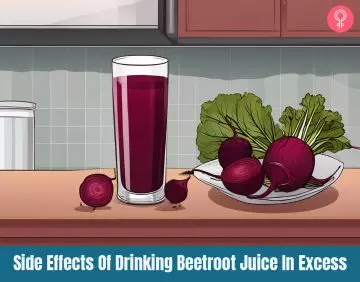
Image: Stable Diffusion/StyleCraze Design Team
Learn about the potential side effects of drinking too much beetroot juice. From low blood pressure to kidney stones, find out what to watch out for in this video.
Personal Experience: Source
StyleCraze's articles are interwoven with authentic personal narratives that provide depth and resonance to our content. Below are the sources of the personal accounts referenced in this article.
i. I Drank Beetroot Juice for 21 DAYS and THIS Happened! 😧… 4 Takeawayshttps://www.youtube.com/watch?v=hUDvHOGFNGgReferences
Articles on StyleCraze are backed by verified information from peer-reviewed and academic research papers, reputed organizations, research institutions, and medical associations to ensure accuracy and relevance. Read our editorial policy to learn more.
- Nutritional Management of Kidney Stones (Nephrolithiasis), Clinical Nutrition Research, US National Library of Medicine, National Institutes of Health.
https://www.ncbi.nlm.nih.gov/pmc/articles/PMC4525130/ - Extreme consumption of Beta vulgaris var. Rubra can cause metal ion accumulation in the liver, Acta Biological Hungarica, US National Library of Medicine, National Institutes of Health.
https://www.ncbi.nlm.nih.gov/pubmed/17899785 - Beeturia, National Center for Biotechnology Information.
https://www.ncbi.nlm.nih.gov/books/NBK537012/ - Plasma nitrate and nitrite are increased by a high nitrate supplement, but not by high nitrate foods in older adults, Nutrition Research, US National Library of Medicine, National Institutes of Health.
https://www.ncbi.nlm.nih.gov/pmc/articles/PMC3319660/ - Anaphylaxis to beetroot (Beta vulgaris): a case report, Clinical and Translational Allergy, US National Library of Medicine, National Institutes of Health.
https://www.ncbi.nlm.nih.gov/pmc/articles/PMC3354182/ - Black or tarry stools, US National Library of Medicine.
https://medlineplus.gov/ency/article/003130.htm - What color-Mari are your stools?, BMJ, US National Library of Medicine, National Institutes of Health.
https://www.ncbi.nlm.nih.gov/pmc/articles/PMC1255795/ - ToxGuideTM for Nitrate (NO3-) CAS# 14797-55-8 and Nitrite (NO2-) CAS# 14797-65-0, U.S. Department of Health and Human Services.
https://citeseerx.ist.psu.edu/viewdoc/download;jsessionid=FB74D6005F52552224C7CA32C5F3E06E?doi=10.1.1.731.7221&&rep=rep1&&type=pdf - EFFECTS OF BEETROOT JUICE, PROTEIN SUPPLEMENTATION, AND
RESISTANCE TRAINING ON STRENGTH IN OLDER ADULTS, Wake Forest University Graduate School of Arts and Sciences.
https://wakespace.lib.wfu.edu/bitstream/handle/10339/57158/Tweedie_wfu_0248M_10734.pdf - Methaemoglobinemia in areas with high nitrate concentration in drinking water, ResearchGate
https://www.researchgate.net/publication/12482112_Methaemoglobinemia_in_areas_with_high_nitrate_concentration_in_drinking_water - Calcium oxalate stone and gout
https://pubmed.ncbi.nlm.nih.gov/19779706/ - Oxalate content of foods and its effect on humans
https://pubmed.ncbi.nlm.nih.gov/24393738/ - Inorganic nitrate supplementation attenuates peripheral chemoreflex sensitivity but does not improve cardiovagal baroreflex sensitivity in older adults, American Journal of Physiology, US National Library of Medicine, National Institutes of Health.
https://www.ncbi.nlm.nih.gov/pmc/articles/PMC6048463/ - The benefits and risks of beetroot juice consumption: a systematic review
https://www.tandfonline.com/doi/full/10.1080/10408398.2020.1746629 - Effects of Beetroot Juice Supplementation on Cardiorespiratory Endurance in Athletes. A Systematic Review
https://www.ncbi.nlm.nih.gov/pmc/articles/PMC5295087/













